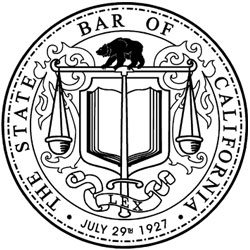Issues in Nevada Child Custody Cases
by Admin | Child Custody
The Nevada Revised Statutes (NRS 125C) establish a legal framework designed to protect children’s welfare and best interests during the challenging process of a divorce or separation. Nevada law emphasizes the importance of child custody in maintaining strong, healthy families despite the dissolution of marriage or domestic partnership. When couples separate, determining the custody of their children becomes a critical issue, often involving complex considerations of parental rights, responsibilities, and visitation agreements. Legally and emotionally, child custody disputes can be intricate. In Nevada, as in numerous other states, child custody cases raise a multitude of concerns that the courts must resolve to guarantee that the child’s highest potential interests are fulfilled. It is crucial to be aware of the common issues that may arise in Nevada child custody cases, regardless of whether you are involved in a custody dispute or attempting to comprehend the process.

Child’s Best Interests
The child’s highest potential interests are the primary concern in any Nevada child custody case. The court is mandated by Nevada law to assess a variety of factors to ascertain the child’s highest potential interests, such as:
- The child’s emotional, developmental, and physical requirements.
- The capacity of each parent to satisfy those requirements.
- The child’s relationships with their parents, siblings, and other significant family members.
- The child’s adaptation to their family, school, and community.
- Any history of substance addiction, abuse, or domestic violence.
These factors assist the court in determining which parent can provide the most stable and nurturing environment.
Legal Custody vs. Physical Custody
Custody in Nevada is classified into two categories: physical and legal. Lawful custody is the decision-making authority over the child’s health, education, and welfare, while physical custody is the child’s home.
- Joint Custody: Nevada courts frequently prioritize joint custody arrangements involving parents sharing physical and lawful custody. This arrangement enables the child to sustain a meaningful relationship with both parents.
- Sole Custody: In certain circumstances, a parent may be granted sole physical and lawful custody, typically because of concerns regarding the parent’s capacity to provide adequate care or safeguard the child.
Parental Relocation
If one parent desires to relocate with the child, it can be a substantial issue in a custody case. Nevada mandates that the relocating parent notify the other parent at least 45 days in advance. If the other parent objects, the relocating parent must persuade the court that the move is in the child’s highest potential interests. Relocation may modify visitation schedules and may even influence the primary custody arrangement.
Parenting and Visitation Duration
Custody cases frequently involve disputes regarding visitation schedules. Parents may have varying opinions regarding the optimal schedule for spending time with their child. Nevada courts endeavor to guarantee that visitation schedules are practical and consistent with the child’s life. Nevertheless, the court will also consider the child’s needs, the parents’ work schedules, and any concerns regarding the child’s well-being.
- Supervisory Visitation: The court may order supervised visitation if there are concerns regarding a parent’s behavior, such as a history of substance misuse or domestic violence. This implies that the parent is only permitted to observe the infant in the presence of a third party.
Domestic Violence and Abuse
The court’s primary concern is the protection of the child in cases where domestic violence, abuse, or neglect is alleged. Allegations of misconduct can substantially influence the custody decision. To safeguard the child, Nevada law mandates that the courts take immediate and decisive action, which may involve restricting or denying the abusive parent’s custody or visitation rights. These allegations can complicate the case, necessitating extensive evidence and testimony to guarantee the child’s safety.
Problems with Substance Abuse
The custody proceedings may be complicated if one parent has a history of substance abuse or is presently battling addiction. The Nevada courts will evaluate the extent to which the parent’s substance addiction has a detrimental effect on their capacity to care for the child. To preserve custody or visitation rights, courts may mandate drug testing or rehabilitation programs for the parent.
Preferences of the Child
The court may consider the child’s preferences in certain instances, mainly if they are mature and capable of expressing their desires. Although the child’s preferences are not always the deciding factor, the court may consider them when determining custody. The final decision in custody matters will still be based on the welfare of the infant, even though Nevada law permits minors over the age of 14 to express a preference.
Changes to Custody Orders
Custody orders are only sometimes guaranteed to be permanent. A parent may request a modification of the custody arrangement if circumstances substantially change, such as a relocation, job change, or improvement in their conduct (e.g., completion of a rehabilitation program). The parent pursuing the change must prove that the modification is in the child’s best interest. Nevada Supreme Court rulings may influence such requests, with lawyers often providing critical assistance. The cost of legal representation can be a factor in how parents access necessary legal advice and resources. Nomination of a guardian or focus on the mother’s ability to care for the child might also be considered. Challenges to the existing order can arise, but each other’s rights and the child’s needs will be central to the decision-making process.
Alienation from One’s Parents
Parental alienation is a phenomenon in which one parent intentionally erodes the child’s relationship with the other parent, frequently by making disparaging remarks or disrupting visitation. The child may experience long-term emotional consequences as a result of this matter, which can also impact the court’s custody decision. Allegations of parental alienation may be taken seriously by the courts, and they may even result in a change in custody if the court determines that one parent is undermining the child’s relationship with the other parent.
Financial Concerns and Child Support
Although the primary concern is the child’s welfare, financial considerations can also influence custody decisions. The amount of financial support a parent can provide, including assets and income, may be evaluated when determining custody arrangements. In cases of annulment or divorce, a divorce attorney or lawyer can help ensure that the financial aspects are addressed. The presumption of a parent’s ability to support the child financially may also factor into decisions regarding custody. Issues like paternity, abduction, and the creation of a parenting plan can further complicate the court’s ruling. Arguments made during the proceedings and a formal decree will impact the final results. The court aims to determine the child’s most stable and supportive environment, which could ultimately influence the allocation of custody.

The Role of the Court in Custody Determination
The court is instrumental in guaranteeing that decisions regarding child custody are made in the child’s highest potential interest. Although parents may have their ideas and preferences regarding custody arrangements, the court is ultimately responsible for making the final decision. This role is especially critical in situations where parents are unable to resolve a conflict or when there are allegations of neglect, abuse, or other complicating factors. The involvement of a child custody counsel can help navigate these challenging situations, ensuring the best outcome for the child. While there are exceptions to standard practices, a lawyer with experience in this area can advocate for the child’s needs and protect the integrity of the practice.
Assessing the Best Interests of the Child
The primary governing principle for Nevada courts in determining custody is “the welfare of the infant.” Nevada’s courts evaluate numerous variables to guarantee that the child’s emotional, developmental, and physical requirements are satisfied. The following are among these factors:
- The child’s interactions with every parent and extended family member.
- The child’s adaptation to their family, school, and community.
- The capacity of the parents to meet the child’s emotional and physical requirements.
- Any family history of domestic violence, neglect, or abuse.
- The child’s desires provided that they are of sufficient maturity and age.
This assessment guarantees that decisions are not solely determined by the parents’ preferences but rather by what will most effectively promote the child’s overall development and well-being.
Granting Custody
The court may grant various custody arrangements that are in the child’s highest potential interests. Physical Custody and Legal Custody are the two primary categories of custody.
- Physical Custody: Physical Custody pertains to the child’s residence. The court may determine that the child will live with either parent (sole physical custody) or both parents on a shared basis (joint physical custody).
- Legal Custody: This custody pertains to the individual responsible for the child’s healthcare, education, and overall welfare. Once more, the court may grant joint lawful custody, which entails that both parents share these responsibilities or sole lawful custody of one parent.
The court may also issue visitation orders (also known as parental time) to enable the noncustodial parent to maintain a relationship with the child.
Alternative Dispute Resolution and Mediation
Nevada courts frequently advocate for parents to engage in mediation or another form of alternative dispute resolution (ADR) before reaching a definitive decision. Mediation is a process in which a neutral third-party mediator assists parents in negotiating and resolving custody and visitation disputes.
In certain instances, mediation may lead to a mutually agreeable resolution without the necessity of a judge’s intervention. Nevertheless, if the parents cannot reach a consensus, the court will intervene and decide on the child’s highest potential interest.
Expert Testimony and Advisory Reports
The court may request advisory reports or expert testimony to assist decision-making in complex custody cases. Evaluations from social workers, child psychologists, or other mental health professionals who evaluate the child’s needs and the family dynamic may be included in these reports.
For instance, the court may mandate an evaluation to ascertain the potential impact of substance addiction or mental health issues on the child’s well-being. In the same vein, the court may solicit the opinions of experts to ascertain the extent to which domestic violence or allegations of misconduct should influence custody decisions.
Modifications to Custody and Visitation Under Supervision
If there are concerns regarding the child’s safety or welfare, a court may order supervised visitation in certain instances. This may transpire if one parent poses a threat to the child or if there are allegations of neglect or maltreatment. Supervised visits are conducted in a public setting or with the assistance of a third-party supervisor to guarantee the child’s safety and control during their interactions with the other parent.
Further, the court has the authority to amend custody orders in case of a substantial alteration in circumstances, including a parent’s relocation, alterations in the parent’s living situation, or changes in the child’s requirements. The parent who is requesting the modification must be able to prove that the change is in the child’s highest potential interest.
Compliance with Custody and Visitation Orders
Once established, a custody or visitation order is legally binding. If one parent fails to comply with the court’s orders, the other parent may pursue enforcement through the justice system. Nevada law offers remedies that may include fines, modifications to custody, or, in severe cases, prison time.
Furthermore, in parental alienation, where one parent intentionally undermines the relationship between the child and the other parent, the court may intervene to guarantee that both parents maintain a meaningful relationship with the child.
Addressing Unique Situations
The court’s responsibility involves resolving any unique circumstances during custody proceedings. This may encompass:
- Relocation: If one parent desires to relocate to a distant location or out of state, the court must authorize the move if it would interfere with the child’s ability to maintain a relationship with the other parent.
- Domestic Violence: Allegations of domestic violence are treated with the utmost gravity. The court may impose restrictions or limitations on visitation and affect custody decisions if it discovers evidence of abuse or violence.
- Substance Abuse: Before granting custody or visitation, the court may mandate drug testing or rehabilitation for the parent with a history of substance abuse.
Conclusion
Nevada’s child custody proceedings can be exceedingly intricate and emotionally fraught. It is imperative to comprehend the variety of issues that may arise during these proceedings, including allegations of misconduct, substance abuse, or parental alienation, as well as the welfare of the infant. Issues related to hearing, compliance, residence, guardian, and the role of the judge can further complicate matters. Ensuring the quality of the legal procedure and focusing on improvement in co-parenting dynamics are crucial. Working with an experienced family law attorney can provide the necessary assistance in resolving these matters and safeguarding your child’s well-being and rights. It is essential to comprehend these issues to achieve a fair and equitable resolution, regardless of whether you seek custody or defend against a custody challenge.
Frequently Asked Questions
What occurs if both parents are deemed unfit?
Suppose the court determines that both parents are unsuitable. In that case, custody may be granted to a relative, such as a grandparent or a third-party caregiver who can guarantee a secure and stable environment. The infant may be placed in foster care until a more suitable arrangement is found.
In Nevada, is it possible for grandparents or other relatives to request custody of a child?
Certainly, grandparents or other relatives can petition for custody if they believe it is in the child’s highest potential interest. Nevada law permits relatives to pursue custody in specific situations, notably when the parents are deemed unfit or if the child has been residing with the relative for an extended period. The court will consider the child’s relationship with the relative and the relative’s capacity to provide a stable home.
What is Nevada's approach to child custody in cases involving same-sex parents?
Nevada’s child custody laws do not distinguish between parents of the same or opposite sex. The court will assess the same factors for all parents, such as the child’s highest potential interests, the parent’s capacity to provide a stable environment, and the relationship between the child and each parent. Regardless of sexual orientation, the law acknowledges the rights of both parents.
Is it permissible for a minor to decline to visit the other parent?
Although a child may express a preference, mainly if they are older, the court will not automatically permit the child to decline visitation. If the child refuses to visit a parent, the parent may need to resolve the underlying issue through counseling or mediation. Notifying the court of a legitimate concern, such as neglect or abuse, is crucial.
In Nevada child custody cases, what is the function of mediation?
Mediation is a frequent and necessary procedure in Nevada child custody disputes. In mediation, a neutral third party assists the parents in discussing and resolving custody and visitation disputes. Mediation aims to avoid a trial by finding a mutually amenable solution. If mediation is unsuccessful, the case may be taken to justice for a final determination.
What is the consequence of a parent violating the custody agreement?
The other parent has the right to request the enforcement of the order if a parent violates a custody agreement by denying visitation or failing to comply with the terms. If the violation is severe, the court may impose sanctions, such as fines or modifications to the custody arrangement. A change of possession may also be the consequence of persistent violations.
Are there any unique factors that should be considered when determining custody of infant children?
Nevada courts may evaluate the child’s attachment to each parent and the role each parent performs in the child’s daily care in custody cases involving young children. In cases involving neonates or toddlers, the court also evaluates which parent is more capable of ensuring the emotional and developmental stability of the child.
Can a child custody order be enforced when one parent resides outside the state?
Indeed, a custody order can still be enforced if one parent relocates to another state, although the process may be more intricate. The Uniform Child Custody Jurisdiction and Enforcement Act (UCCJEA) has been implemented in Nevada, enabling the enforcement of custody orders across state lines. Nevertheless, the parent pursuing enforcement may need to collaborate with the courts in both states to guarantee adherence to the order.
What is the outcome of a custody dispute where the child has special needs?
If a child has special needs, the court will evaluate each parent’s capacity to address the child’s physical, emotional, and medicinal requirements. This can affect the custody arrangement, as the court may favor the parent who can best meet the child’s distinctive needs. It is crucial to substantiate claims regarding the child’s unique requirements with evidence, such as medical records.
What actions should I take if the other parent of my child does not allow me to visit the child by court order?
If your child’s other parent does not adhere to the court-ordered visitation schedule, you can file a motion for contempt with the court. This legal action seeks to have the court enforce the current custody order, which may result in penalties or even a modification of the custody arrangement. It is imperative to record any instances in which visitation was denied.
Experienced Legal Support for Navigating Child Custody Issues in Nevada
We understand child custody cases’ legal and emotional obstacles at Huggins Law Office. Whether you’re dealing with disagreements about lawful custody, physical custody, or visitation rights, we’re here to offer compassionate support and expert legal advice. Complex factors, including parental fitness, the child’s highest potential interests, and the stability of the home environment, are frequently discussed in Nevada child custody cases. Throughout the process, our team is dedicated to preserving your rights, empowering you to make informed decisions and confidently navigate the legal complexities.
Our attorneys have several years of experience addressing various child custody issues, such as relocation requests, contested custody conflicts, and modifications to existing agreements. From presenting evidence to negotiating with the other parent to representing your interests in court, we will provide comprehensive guidance throughout the process. One of our objectives at Huggins Law Office is establishing custody arrangements prioritizing your child’s safety, emotional well-being, and stability. If you are involved in a child custody dispute in Las Vegas, Nevada, please contact us today to arrange a consultation. Allow us to assist you in safeguarding the future of your family.




